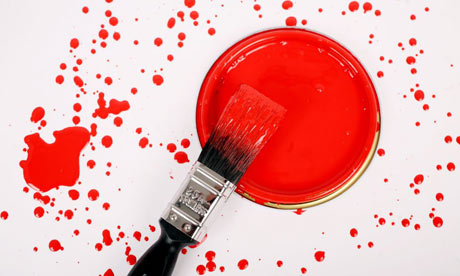
Kevin Brophy is an Australian poet, critic and novelist, whose name will probably be new to many readers in the UK. It was new to me until a few weeks ago, when by chance I met him during his visit to Bangor University.
The experience of reading his latest collection, Mr Wittgenstein's Lion, turned into a delightful adventure. I knew where I was, linguistically, but felt happily "abroad" in a new sensibility, kept in a state of surprise and anticipation. Discovering this witty, friendly but also unexpected and sometimes dark-edged new voice has inspired a new year's resolution to become better informed about what contemporary Australian poets are up to.
It would be rash to generalise on the basis of having read a handful of a country's poets, particularly when the country is as vast as Australia, but I suspect there is less of a sense of being "divided by a common language" for UK readers than when we read new American poetry. The feeling for place that informs so much of British poetry is certainly strong in Brophy's work. Family life is a frequent topic, quizzed wryly and affectionately, de-familiarised and not quite put back together again. There is a compelling mix of the local and the strange, the scientific and fantastical, the philosophical and the domestic, all adding up to a homely surrealism which may owe something to Lewis Carroll as well as the great prose-poet Russell Edson.
That sense of a heightened definition of the world, which should occur whether we're reading a poem for the first time, or the 101st, seems to be embodied in the piece I've chosen for this week, "Painters". It would certainly be tempting to say that the painters here are really artists with a capital A – poets, in fact. But perhaps that's too easy. Possibly they represent any devotee - manual labourer or scientist, surgeon or prophet – anyone who is hooked on their work, and changes reality, or our perception of it, in the process.
The detached clarity of the description somehow suggests that the painters are being seen by the speaker for the first time, or even that he is reporting back on an interesting new species. They are solid, almost ordinary: we've all met them. But their ladders are folded above them like wings. They are compared to elves. They wield their paintbrushes on the world around them as magical characters in children's stories sometimes do.
They are portrayed with whimsical charm, but their role is not innocent or childlike. We, the readers, are implicated. By making the world "deeply real" for us, the painters pay a heavy price. The substance that brings transformation is highly toxic, and its users are making a godlike sacrifice, in thrall to a world with unstable values, where certain colours may suddenly fall out of favour. The poem explains this unjudgmentally, then moves on. The painters return to their passion, as if they had no choice.
This is, I believe, a metaphysical poem. It wears its metaphysics lightly – but it is still concerned with ultimate values and the flawed intersection of worldly and unworldly things. The ebb and flow of its rhythms at times suggests the music of a contemporary psalm.
Painters
It is as if each one had been sent to colour in the world,
and to do it between the showers of rain
so that colours will have time to fix themselves
on walls and pipes and window ledges.
When it rains the painters in their speckled overalls and spotty shoes
sit quietly in vans
with ladders like folded wings above them.
They drink white coffee with two sugars
and treat themselves to doughnuts from the local bakery,
sugared cinnamon.
At night they dream of edges of immaculate neatness.
They admire leaves and what autumn does to them.
Their lives are short, for each painted colour releases
a poisonous fume like a sigh
as it spreads and dries and makes our lives feel
deeply real.
The painters speak less and less
as the fumes take hold.
Their wives and children watch the painters going
like elves to another kind of existence.
You ask them what to do with leftover cans of paint
and they tell you it's not easy,
for paint would stain the sea and kill the fish if you let it go.
There are places, deep and foul, where paint must go
when its colour is no longer favoured, they will say,
and you will feel they are the enemies
of the paint they love. Their elf hearts move inside them
at each slap of colour on a wall or fence or seedy chair.
Kevin Brophy's new collection of poetry Mr Wittgenstein's Lion is available from Five Islands Press

